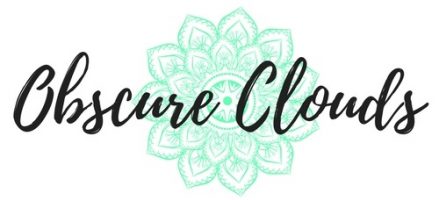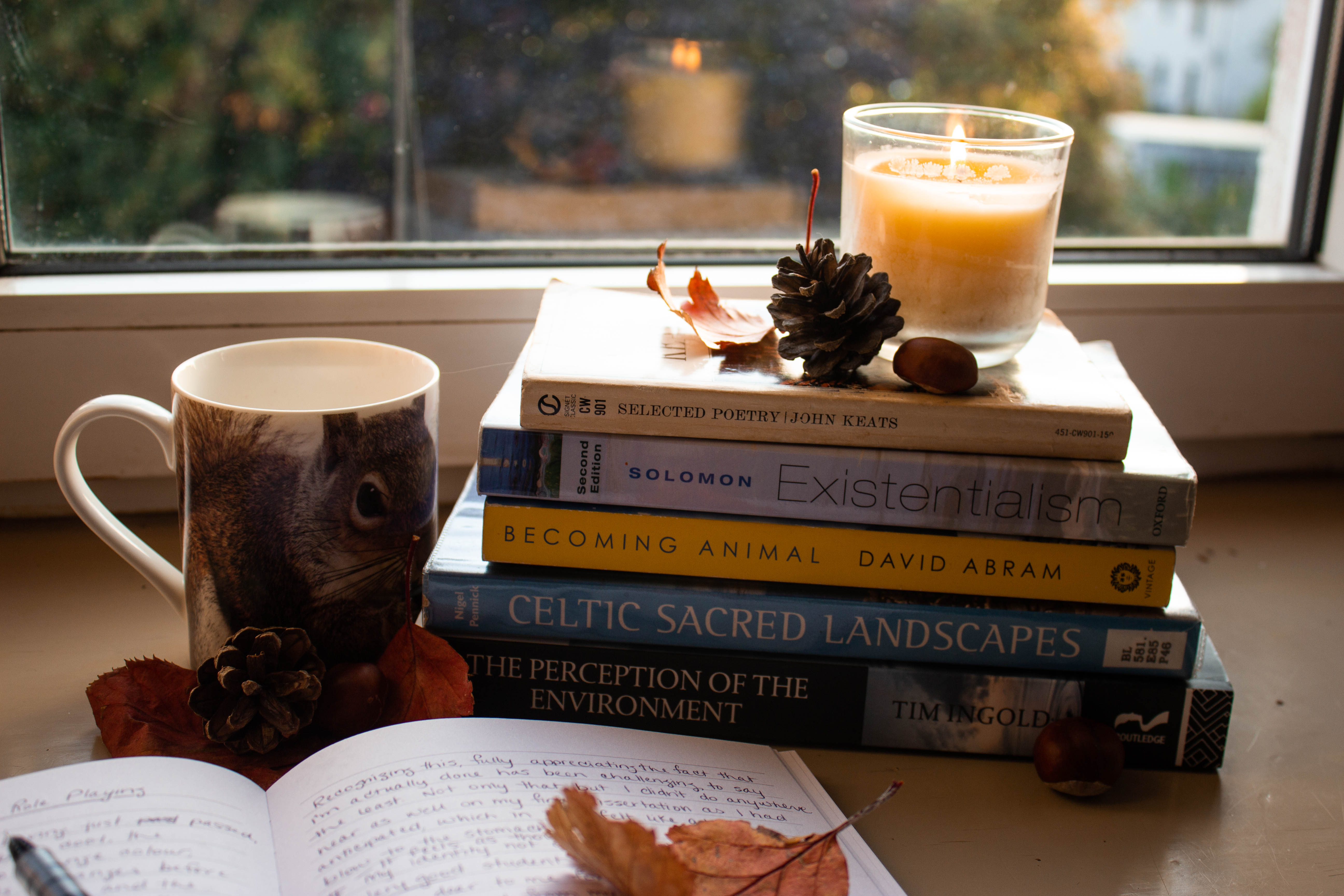“All the world’s a stage,
And all the men and women merely players;
They have their exits and their entrances;
And one man in his time plays many parts…”
~ William Shakespeare, As You Like It
The Autumn Equinox has passed. Chilly days and darker evenings are upon us, and we watch now as the leaves turn from green to vibrant oranges and reds before falling to the ground, dancing in the cool winds as they go. This is a time of change. Of release, of loss and of death, as what once flourished and blossomed so beautifully throughout the summer now curls inward and returns to the earth once again.
The onset of autumn is a time for reflection and deep inner contemplation. It’s a time to think about all the challenges and successes we encountered over the course of the past few months—to consider how we’ve grown and what we’ve learned.
It’s also a time for letting go, for embracing death as it manifests both literally and metaphorically.
For me, this has meant learning to accept and embrace the death of self in a sense. It’s meant letting go of old notions of identity, and coming to recognize once again that as a living being on this incredible earth, I am so much more than a compilation of roles and appearances. I am a whole that is more than the sum of its parts, and I belong to a greater unity that escapes all efforts to pin it down with descriptors, or to be known in any comprehensive manner.
These are things that I know. Things that deep down, I think we all know. But they are so easy to forget, particularly when we let ourselves become consumed by the concerns of everyday life. We become so wrapped up in our own little worlds, in our own worries and anxieties, our own fears, that we forget that we are infinite.
And sometimes when that happens, we need a hard smack to bring us back to the truth, back to the core. Sometimes our world needs to be shattered, our notions of self ripped from us and stomped on in order for this necessary shift in perception to occur. Basically, we need to experience a good old existential crisis to remember once again what’s truly important in life, and where we really stand.
For me, this existential slap in the face has come in the form of struggling to let go of my identity as a student, as an “academic.” With the release of the final marks a couple weeks ago, I can now say that my six-year journey as a university student has now come to an end. Or at least, been placed on indefinite hold. And even though this may not seem like an earth-shattering, gravity reversing kind of change, for me, it kind of is.
I don’t think I fully realized just how much of my core identity I based on being a student before I suddenly found myself without that label anymore. Not only that, but I based so much of it on being a good student—an exceptional student—something that my final results snatched away from me too. It feels as though this huge part of my identity, a key aspect of my self-narrative has been ripped from my grasp and torn up in front of me. This part of me that I’ve presented to the world, to myself, used to make other people proud and to validate myself has slipped away, disappeared. It’s been pulled out from underneath my feet, opening the vast void of the unknown beneath me. And I’m just barely clinging onto the edge.
It’s left me terrified, as well as sad, and anxious, and scared. Because who am I, if not “the good student”? What path am I supposed to be following, if not into academia? What the hell am I supposed to be doing now?
But I guess that’s the thing, isn’t it? Because I’m not “supposed to” be doing anything. I’m not “supposed to” be being anyone. None of us are. We live so much of our lives as though we’re working towards some ultimate goal, some given end… As though we’re fulfilling some kind of destiny, slotted into who we think we’re supposed to be, or who others attempt to make us into. But what happens when we fail to reach that given end? Or what about when we reach the final goal, and realize that’s not actually the end of it at all?
Of course, I’m much more than a student. I’m also a daughter, a girlfriend, a Pagan, a pantheist, a reader, a cat-lover, a feminist, a blogger, a collector… Like all of us, there are so many different bits and pieces that make up who I am, and shape my identity. Yet while on one level I am all of these various things, all of these identities, on another level, I am not, because I am also so much more than that. More, that is, than a combination of the different roles that I play in life.
As Jean Paul Sartre famously put it, existence precedes essence—human beings simply are before they can be defined, for
“man first of all exists, encountering himself, surges up in the world—and defines himself afterwards.”
Before we can construct ideas of ourselves as something, we simply are. We merely exist as people, plain and simple. In other words, my existence transcends all these different roles that I play in my life of daughter, blogger, even Pagan–no matter how important they may be to my core sense of identity. I exist beyond notions of myself as a good student, as a girlfriend, or aspiring writer, I exist beyond myself as anything. Because when it comes down to it, I simply am.
Of course, the problem is that the world we live in demands that we take on certain roles, whether we choose them for ourselves, or are seemingly forced into them. We take on roles like student, mother, nurse, wife, writer, like parts in a play, dressing up in different costumes as we act out various scenes. And while playing these roles may be tiresome or exciting, fulfilling or draining, we take them on and act them out day after day, pretending that this is who we really are. Pretending that we are the roles we play and nothing more, allowing ourselves to become all too caught up in them, because it’s all part of the performance—all part of the game.
What game, you ask? The game of life, of course! And no, not the board game, but the game of life as Alan Watts discusses it, drawing from Eastern notions of Maya or illusory reality—essentially the notion that life is but a game, a pantomime… the universe just having fun with itself. And to join in with the continually unfolding drama of consensus reality is really to participate in the greatest show on earth. Because the show fundamentally is the earth, and the earth situated within the cosmos. As Shakespeare recognized, all the world’s a stage…
On one level, understanding reality as we know it to be a dramatic performance, or a game we’re all just players in seems overwhelmingly nihilistic, and downright depressing. If this is all just a game, then why should we take anything seriously at all? How can there be any genuine meaning or value in life? Basically: what the fuck is the point then?
I think, ultimately, there can be many answers to this question. But I think that’s the case because, really, there is no point. The point is whatever you make it. Meaning and value are not givens, but things that must be continually determined (and redetermined) by each individual. To paraphrase Miley Cyrus (apologies): life’s what you make it… so do something good with it, god damnit.
To return to Sartre for a minute here, when we take on these roles, like that of the good student, and act as though that’s all we are, we engage in a process of making ourselves into passive objects—what Sartre calls the “being-in-itself.” This being-in-itself can be contrasted with the active subject that escapes essentializing descriptions and transcends limiting identities—the “being-for-itself” that simply is.
There is a difference in other words between the “I” that is a student, the object, and the subject that plays at being the student. Whereas the object surrenders themselves to the world, giving up autonomy and free will to fit into that particular role, letting external factors shape it as they may, the subject recognizes its own agency, and its own radical freedom to create its own life and determine its own reality.
To pretend that one doesn’t have this agency, and to give oneself over to fate is to be in what Sartre calls “bad faith”—basically pretending that you don’t have the freedom that you actually have as an active human agent. We usually act in bad faith, making it seem like we don’t have a say in the decisions we make, when we’re afraid of the potential consequences that may arise from our choices. Essentially, we want to avoid taking responsibility for our actions.
To live in bad faith is to live in fear.
All this to say that I think a major part of the reason it’s been so challenging for me to give up my identity as a student is because I’m terrified of the choices facing me now. I’ve been trying to cling to this idea of myself as a student, as an academic, because it lays out some sort of path for me, gives me the illusion of a destiny that omits the necessity of making huge life decisions.
Letting go of my role as a student and recognizing that none of the roles I play fully define me as a human being or can ever fully determine the course of my life means releasing my grip on the edge of this hole beneath me, and allowing myself to drop down into the unknown, without any idea as to what may be there to catch me.
I’m sacred of making the wrong decision. Sacred of missing opportunities, scared of following the wrong path… scared what saying “yes” to something might mean.
And this fear is normal. It’s virtually an essential part of being human, and of making that transition from the being-in-itself to the being-for-itself. The feeling that comes from looking into the abyss is what existential dread is all about, after all.
But now that I’ve had some time to reflect on this period of major change in my life, and I’ve contemplated potential outcomes of various decisions, I’m starting to realize that while letting go of past identities may be terrifying, it can also be exhilarating. And instead of falling into the unknown, I can jump into it. I can take this leap of faith, laughing as I do.
Because in the end, if life’s really just a game, then why shouldn’t we laugh? Why shouldn’t we just say “fuck it” every now and then, and see where the waves take us? In fact, I think sometimes, that’s the best way to play it.
Plus, no matter what choices we may make in the moment, we can always change our minds, and choose something else. No decision is ever completely binding—we are never fully stripped of our free will. We can always choose which role we’ll take on next, which costume we’ll dress up in today. So why not have a little fun with it?


